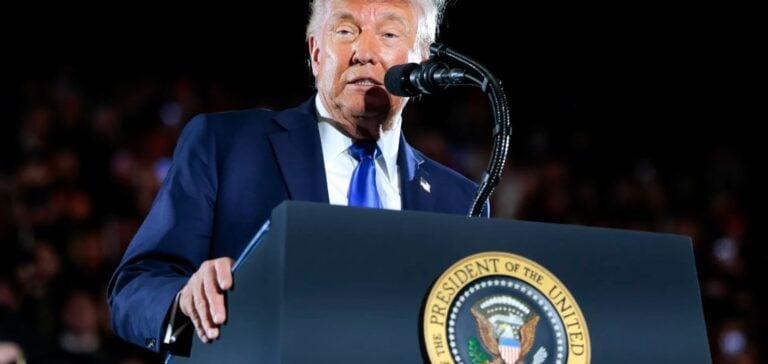Donald Trump, former U.S. president, categorically ruled out any uranium enrichment under a potential nuclear agreement with Iran. This statement follows revelations by Axios regarding a recent American proposal allowing limited enrichment. The contradiction between this proposal and Trump’s public statements clearly highlights persistent differences in these discussions. Abbas Araghchi, head of Iranian diplomacy, stated Iran would not accept any agreement that restricts its civilian nuclear activities.
Tensions over Uranium Enrichment
At the heart of negotiations, uranium enrichment remains the primary obstacle. Western nations and Israel fear Tehran secretly aims to acquire a military nuclear capability, an assertion strongly denied by Iran. Iranian authorities insist on their right to pursue a civilian nuclear program in accordance with the Non-Proliferation Treaty (NPT), to which the country is a signatory. Iran considers this right non-negotiable and essential for its economic and energy objectives.
The Kremlin took a stance on Tuesday supporting Iran, explicitly defending its right to civilian nuclear energy. Dmitry Peskov, Kremlin spokesman, emphasized that every country has the legitimate right to pursue civilian nuclear programs consistent with international agreements in force. Russia officially supports Iranian claims that Tehran has no intention of developing nuclear weapons. Moscow favors a peaceful resolution to this complex and sensitive diplomatic conflict.
Strategic Alliance between Tehran and Moscow
This stance comes as relations between Russia and Iran have significantly strengthened since the Russian invasion of Ukraine in 2022. Both countries, subject to significant Western sanctions, strengthened their cooperation by signing a comprehensive strategic partnership in January. This agreement marks another step in diplomatic and economic rapprochement between Moscow and Tehran, reinforcing their alliance in a geopolitical context characterized by opposition to international sanctions imposed by the United States and its allies.
The contradictory statements by the United States and Russia highlight the complexity of the issues surrounding the Iranian nuclear dossier. As Tehran maintains its position, refusing to renounce its right to civilian nuclear energy, the prospect of an agreement remains uncertain. This situation keeps international observers on alert, considering the major economic and geopolitical implications at the global level.






















